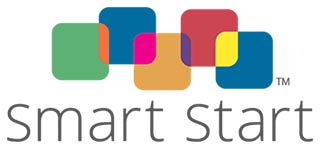In 1987, President Reagan recognized March as Developmental Disabilities Awareness Month to increase “public awareness of the needs and the potential of Americans with developmental disabilities” and to provide the “encouragement and opportunities they need to lead productive lives and to achieve their full potential.”
In the United States, developmental disabilities affect about one in six children. These conditions encompass a variety of impairments in physical, learning, language, or behavior areas. They typically emerge during the developmental period and can impact a child’s day-to-day functioning throughout their lifetime. Developmental disabilities are conditions that affect how a child grows and learns. They can manifest in various ways, such as difficulty in learning, delayed speech, or challenges in social interactions. These conditions are diverse and can range from mild to severe.
Monitoring your child’s development is crucial in identifying any potential delays or concerns. Developmental milestones are skills or abilities that most children acquire by a certain age. These include actions like crawling, walking, speaking, and socializing. The Centers for Disease Control and Prevention (CDC) provides comprehensive developmental milestone checklists from 2 months to 5 years to help parents track their child’s progress. You can find these at https://www.cdc.gov/ncbddd/actearly/milestones/index.html

If you have concerns about your child’s development, it’s essential to communicate with their healthcare provider promptly. When scheduling an appointment, be clear about your worries and provide specific examples of your child’s behaviors or challenges. Keeping notes can be helpful during your discussion with the doctor. For children under the age of three, contacting your state’s early intervention services office is also recommended. Express your concerns and request an evaluation for your child. Be prepared to provide relevant information about your child and your observations. Remember acting early can make a real difference for you and your child. Early intervention can help by changing a child’s developmental path and improve their outcomes and families can benefit by being better able to better meet their child’s needs.
Navigating developmental disabilities can be challenging, but you are not alone. There are various resources and support networks available to assist families in understanding and managing these conditions. In North Carolina, the Children’s Developmental Services Agency (CDSA) is the lead agency for the Early Intervention Infant-Toddler Program. They are the best resource, next to your doctor, to reach out to if your child is under three years old and you have developmental concerns. There is support for families whose children have been identified as having a developmental disability through organizations like Family Support Network of Central Carolina and Disability Rights NC. And you can educate yourself with the CDC’s Act Early initiative at https://www.cdc.gov/ncbddd/actearly/index.html
Remember, early intervention is key in addressing developmental concerns. By staying informed, seeking assistance when needed, and advocating for your child, you can help them thrive despite any challenges they may face.





